In the tumultuous aftermath of an Israeli monitoring organization's damning accusations against international media,implicating them in collaboration with the Hamas movement's attack on settlements within the so-called 'Gaza envelope' on October 7, the journalistic landscape finds itself at the epicenter of a heated controversy.
Women Journalists Without Chains, an advocacy group, stands as a vocal critic, expressing profound dismay over what they perceive as a serious threat to the safety of media personnel in both the Gaza Strip and Israel. This essay navigates through the intricate layers of media rejection, ethical dilemmas, and geopolitical implications, shedding light on the tumultuous landscape where journalism and conflict converge.
In the wake of an Israeli monitoring organization's scathing accusations against the international media, alleging collaboration with the Hamas movement in its bold attack on settlements within the so-called "Gaza envelope" on October 7, the "Women Journalists Without Chains" organization expresses profound dismay. This essay embarks on an enlightening exploration, delving into the media's resolute rejection of these charges and shedding light on the perceived gravity of the threats that imperil the safety of its dedicated personnel and courageous correspondents in both the enigmatic Gaza Strip and steadfast Israel.
In a dazzling display of dissent, the titans of media, encompassing CNN, Reuters, the Associated Press (AP), and The New York Times, harmoniously raised their voices against a report unveiled on Wednesday by the Jerusalem-based organization, HonestReporting. With contentious assertions reaching new heights, the report dared to insinuate that the presence of intrepid photojournalists, representing these media powerhouses, in the ethereal realm of the porous border zone, evokes profound ethical concerns. As the subsequent analysis delves into the intricate tapestry of objections articulated by these influential media sources, it unveils the mesmerizing intricacies of the ethical dilemmas presented by Honest Reporting's audacious claims.
HonestReporting accuses journalists of using photos to implicate media outlets in collaborating with Hamas on October 7th. However, the organization fails to provide concrete evidence to substantiate its claims. The report questions the early morning presence of journalists, insinuating a dangerous perspective that frames journalism as a serious crime warranting punishment. Many find the report by the Israeli media watchdog organization "HonestReporting" shameful, highlighting a need for the organization to better understand the fundamental principles of free press institutions. These institutions are dedicated to capturing news, photos, and videos of global events at any time, even if controversial or deemed unfavorable by certain parties or entities, potentially conflicting with local and international images.
Geopolitical Implications: Media Manipulation and War Propaganda
Women Journalists Without Chains discerns in this report a symbolic representation of the Israeli authorities' and closely aligned media organizations' systematic approach to molding media narratives in Israel and Gaza. They assert that this calculated strategy caters to the propaganda requirements of the ongoing conflict, encompassing the incitement against journalists and the weaponization of accusations of terrorism to manipulate the portrayal of events. Such tactics evoke genuine concerns about the potential exploitation of these methods to justify endangering the lives of journalists, raising alarming questions about the prioritization of truth and the safety of those reporting on the ground.
In response to these accusations, The New York Times vehemently denied the claims, stating that the allegation of prior knowledge of Hamas attacks or accompanying Hamas terrorists is false and shameful, emphasizing that making such claims puts their journalists in Israel and Gaza at risk. Nicole Meyer, a spokesperson for the Associated Press, asserted, "The Associated Press did not have prior knowledge of the October 7 attack. The Associated Press uses photos from independent journalists from all over the world, including Gaza."
Reuters clarified that they obtained photographs from Gaza-based freelance photographers who were present at the border on the morning of October 7, emphasizing that they had no prior relationship with them, while the published photographs were captured hours after Hamas fired rockets and Israel reported gunmen crossing the border.
Governmental Involvement: The Intersection of Politics and Media Control
While "HonestReporting" portrays itself as a charitable organization dedicated to truth, integrity, and fairness in journalism, particularly concerning Israel, the recent report raises suspicions of potential ties to the Israeli government. There are concerns that the government may be using this organization to influence foreign media coverage of the ongoing conflict, turning it into a tool for propaganda and obstructing the dissemination of facts from Gaza and Israel. In light of the report, Israeli Minister of Communications, Dr. Shlomo Karai, addressed the four media outlets, urging individuals, journalists, institutions, unions, and organizations worldwide to make a decisive choice between standing for life and goodness or supporting deviant terrorism, inhumanity, and evil.
Benny Gantz, the Chief of Staff of the Israeli Defense Forces, posted on (x), stating, "Journalists who were aware of the massacre and still choose to stand idle as children are slaughtered are no different from terrorists and should be treated as such." Etamar Ben Gvir, Israel's National Security Minister, similarly wrote on (x) that those who were present at the massacre and took photos are considered terrorists, with a single judgment for such individuals. Additionally, Danny Danon, a former Israeli ambassador to the United Nations, announced that the Israeli internal security agency plans to eliminate all participants in the October 7th massacre, including 'journalist photographers' who documented the attack.
Under Scrutiny: Escalating Threats and Growing Hostility
Women Journalists Without Chains contends that the statements issued by Karai, Gantz, Ben Gvir, and Danon constitute explicit threats and serve as a potential prelude to justifying new atrocities against journalists in Gaza, where their number exceeds 1000. The organization posits that the targeting of journalists since the war's inception represents a methodical effort to silence witnesses of truth in Gaza. The uninterrupted Israeli airstrikes in Gaza since October 7th have resulted in the tragic loss of over 30 journalists, marking the highest death toll for journalists in a single month in the region's modern history. In stark contrast, Israel maintains that Hamas was responsible for the deaths of only 4 journalists in that particular attack.
Moreover, not only has the Israeli Inspector General's office issued an urgent letter to the heads of media institutions that employed these photographers, requesting clarifications on this matter, but the concerned diplomatic offices have also been asked to take immediate action. Adding to the complexity of the situation, the Israeli Ministry of Foreign Affairs has cast doubts on international media outlets that report events and facts in Gaza and Israel, stating that 'it appears that the media had journalists associated with Hamas terrorists [during] the October 7th massacre'.
Under the emergency regulations, officially endorsed by the Cabinet on October 20, Israeli authorities are empowered to enact war measures, encompassing a range of actions related to media censorship. These measures include making decisions that contravene international law, such as closing media outlets and their offices, restricting communication and internet access, and detaining both male and female journalists. Additionally, martial law can be imposed if local or international media publish content deemed detrimental to the morale of Israeli soldiers and citizens facing the enemy or supportive of the enemy's cause. This authority extends to closing media offices and implementing broadcast boycotts.
Media as a Target: Evasion of Responsibility or Tactical Maneuver?
The swift response of the Israeli government to this report underscores a concerning pattern, signaling an evasive stance and a refusal to acknowledge what we perceive as war crimes against journalists. This deliberate targeting of foreign media, coupled with attempts to distort their reputation and incite them, places correspondents and employees in Israel and the Gaza Strip at grave risk. Since October 7, the Israeli government's stance towards the press, both local and international, has become increasingly hostile, transforming the work environment for independent journalists in the Gaza Strip into a harrowing ordeal. Male and female journalists now operate under the constant threat of imminent danger, not only for themselves but also for their families.
Expressing deep concern, Women Journalists Without Chains fears that Israeli authorities are preparing Israeli public opinion for a potential new assault on male and female journalists in the Gaza Strip, signaling the start of operations to restrict the work of journalists in Israel. The organization sternly warns the Israeli government against engaging in such actions and calls for an immediate and public retraction of the ongoing campaign of incitement against the media.
In a strong appeal for safeguarding freedom of the press, the organization emphasizes the necessity for Israeli officials to affirm their commitment to this fundamental principle. It stresses the urgency of ensuring the safety of male and female journalists, enabling them to carry out their work securely. This, it argues, is crucial for conveying the accurate account of events and developments in the current war to the global public, underscoring the public's right to be informed.
Women Journalists Without Chains categorizes the systematic killing and incitement against media and press crews in Gaza and Israel as "war crimes" that demand unequivocal condemnation. They urgently call upon the international community, international organizations, and the International Criminal Court prosecutor to recognize their responsibilities in addressing these war crimes. The organization insists on preventing the perpetrators, instigators, and those issuing orders from evading accountability through a fair trial.
Resolutely, Women Journalists Without Chains emphasizes that acts of killing and incitement, not subject to punishment under international law, cast a chilling impact on journalists in Israel and Palestine, contending that the prevailing policy of impunity for war criminals targeting journalists only serves to embolden further criminal acts.
Issued by:
Women Journalists Without Chains
November 10, 2023


 En
En  Ar
Ar 



